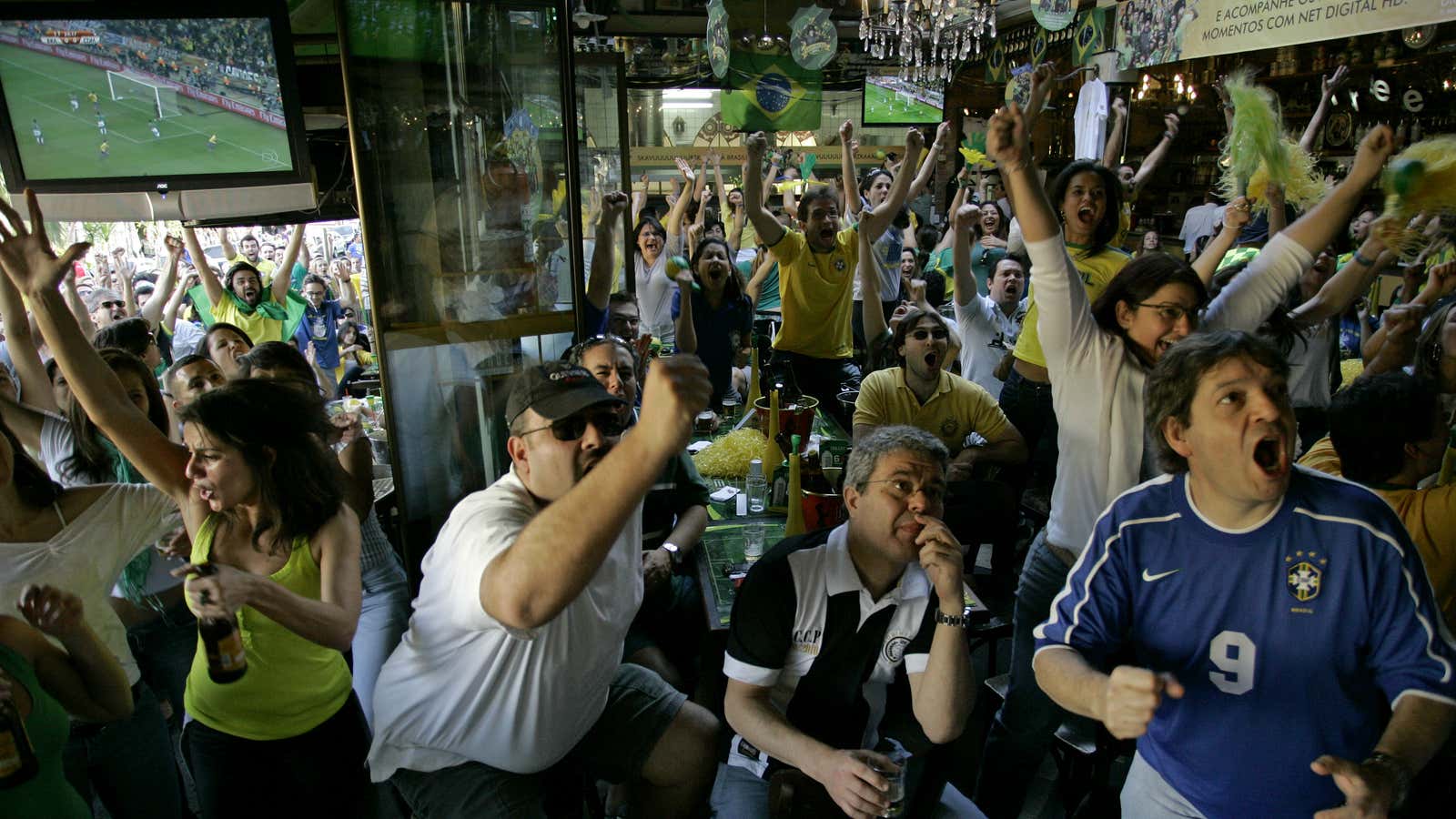As Brazil’s most severe economic downturn since the Great Depression rumbles on, legislators are considering a new source for tax revenues: gambling.
In 1946, the Copacabana Palace—the famous beachfront Rio de Janeiro hotel that still exists today—had a casino that netted nearly $100 million per year from its gaming tables, according to Americas Quarterly. That was the last year casinos were legal in Brazil, while bingo halls were outlawed in 2007, amid concerns of money laundering. Horse racing and federal lotteries are still legal.
Brazil’s lower house and senate are considering separate legalization bills, and the new Brazilian president, Michel Temer, has already shown support for the idea (link in Portuguese). Henrique Alves, Brazil’s minister of tourism, has projected that legalized gambling could generate up to 20 billion reais ($6.1 billion) annually in tax revenue.
Brazil’s Legal Gaming Institute estimates that Brazilians place about the same amount of money in illegal bets each year, according to the Financial Times. They place most of those bets on a century-old lottery called Jogo do Bicho, or, “animal game.” While many point to Jogo do Bicho‘s enduring success to indicate the potential for Brazilian gambling, foreign investors are circling, stating interest in resort-based casinos and Brazil’s national sport: football.
With a budget deficit hovering at nearly 10% of the country’s GDP, it’s understandable that Brazil would want to cash in on taxes and global investment to fill its coffers. But some worry legalized gambling would perpetuate the problem that underlies Brazil’s economic sinkhole to begin with: government corruption.
